Has Panama seen the last of its outgoing president?
- Published
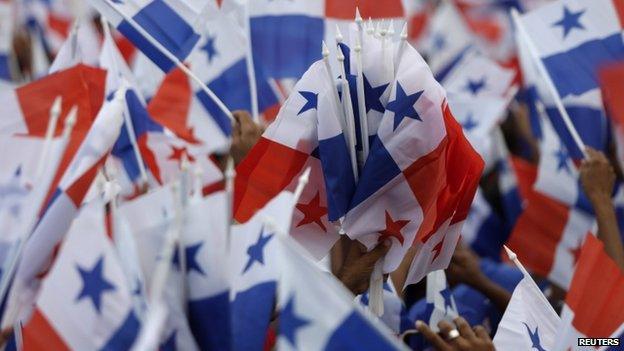
Panamanian will go to the polls on Sunday to choose a new president
Panamanians go to the polls on Sunday to choose a successor to a president who must step down but who is thought by critics to be planning to hold on to power.
President Ricardo Martinelli is not allowed to stand for re-election this time round, but his wife, Marta Linares de Martinelli, is running for the vice-presidency, leading to suggestions that Mr Martinelli is keen to run affairs from behind the scenes.
Who is Marta Linares?
She is a political novice and the running mate of Jose Domingo Arias, the candidate of the governing Democratic Change party.
Shortly after it was announced that she was running for vice-president, she stepped down from the office of first lady to work full time on Mr Arias's campaign.
Her dual role as candidate and president's wife had attracted criticism both from the opposition and the media.
Born in 1956, Marta Linares married Mr Martinelli in 1978. She worked as an insurance broker from 1980 until 2009, when she became first lady.
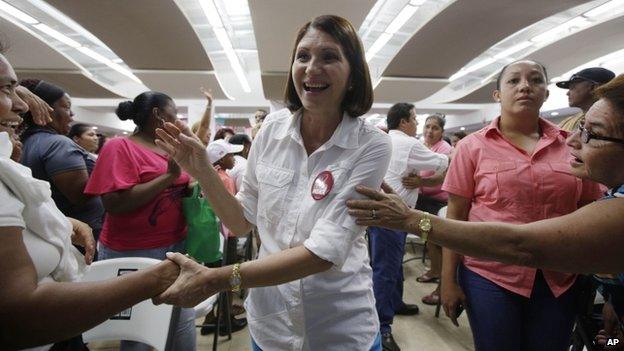
Marta Linares says she is a standing in her own right as a successful businesswoman
Why is her candidacy controversial?
Critics say her candidacy is a thinly veiled attempt by Mr Martinelli to keep his grip on power after a five-year presidency marked by strong economic growth but also by mounting allegations of corruption.
She says she is a strong candidate in her own right and her husband has stressed he has no intention of holding on to power.
Opposition supporters have petitioned the Supreme Court to dismiss her nomination, alleging it is unconstitutional.
Analysts say that since the rule of strongman Manuel Noriega ended in 1990, Panamanians have been suspicious of anything that might deviate from the rules governing the transfer of power.
How would her election help Mr Martinelli?
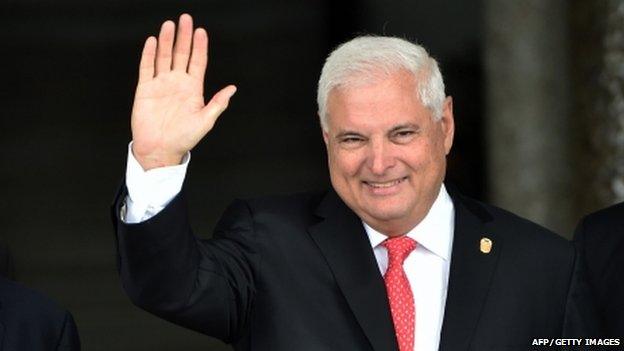
Mr Martinelli says his wife is not a stand-in for him
Many believe that a win by Ms Linares would allow Mr Martinelli to remain influential and close to power.
There has also been speculation that an Arias-Linares government would seek to eliminate the constitutional requirement that a president sit out two terms before becoming eligible to run again - allowing Mr Martinelli an earlier bid for the top job.
Meanwhile, Mr Martinelli has been busy campaigning for his Democratic Change party, engaging in what critics have called a veritable "ribbon-cutting marathon", which leads them to believe he is far from done with politics.
And in a potential violation of a ban on campaigning by the president, he warned that economic growth would be jeopardized if any of his party's rivals won the election.
Who is running for president?
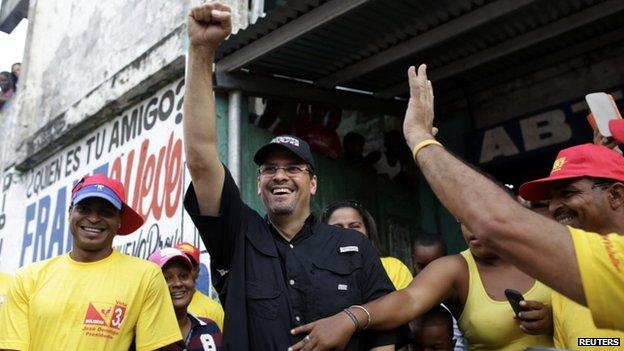
It is the first time that Jose Domingo Arias is running for office
Jose Domingo Arias is the candidate for the ruling Democratic Change (CD) party. He served in President Martinelli's government, most recently as housing minister.
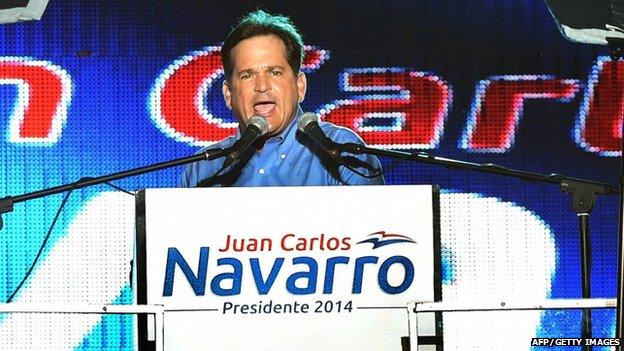
Juan Carlos Navarro, an environmentalist
The former mayor of Panama City, Juan Carlos Navarro of the centre-left Democratic Revolution Party (PRD), is the leading opposition candidate. An umbrella opposition movement, the New Republic, has been backing Mr Navarro as the best option to avoid the "disguised re-election" of Mr Martinelli.
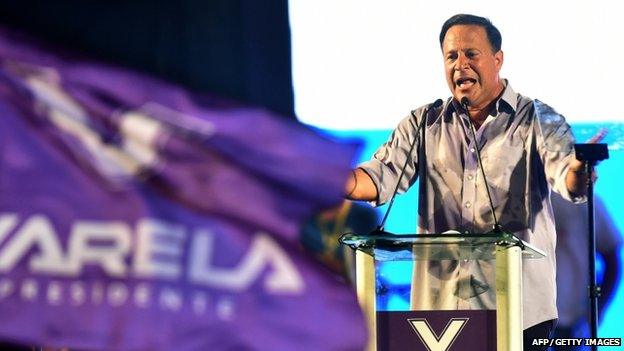
Juan Carlos Varela has promised voters "an honest government"
Juan Carlos Varela is the current vice-president. He is the candidate of the right-wing Panamenista Party and served for a time as foreign minister under President Martinelli.
Who is favoured to win?
Mr Navarro and Mr Arias are the front-runners according to opinion polls, and analysts suggest it could be a very close result.
The president is elected to a five-year term by direct vote of the people, and whoever gets the most votes in the single round of voting wins.
What challenges will the victor face?
The new president will inherit a strong but slowing growth rate in the Central American country of 3.6 million people and will oversee the completion of a multibillion-dollar expansion of the Panama Canal, which was disrupted this year by a dispute over cost overruns.
BBC Monitoring, external reports and analyses news from TV, radio, web and print media around the world. For more reports from BBC Monitoring, click here. You can follow BBC Monitoring on Twitter , externaland Facebook, external.